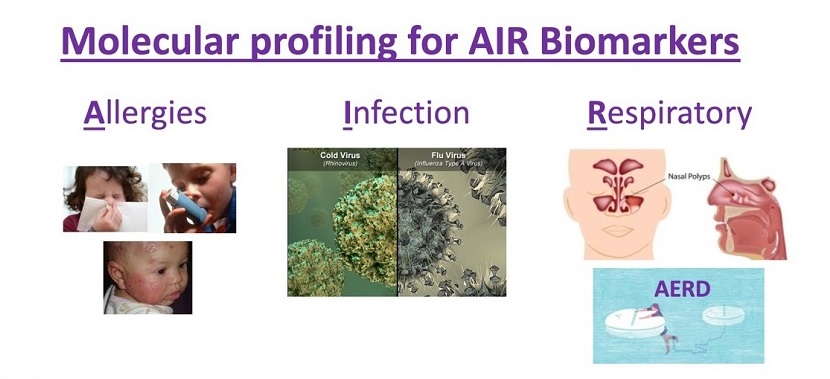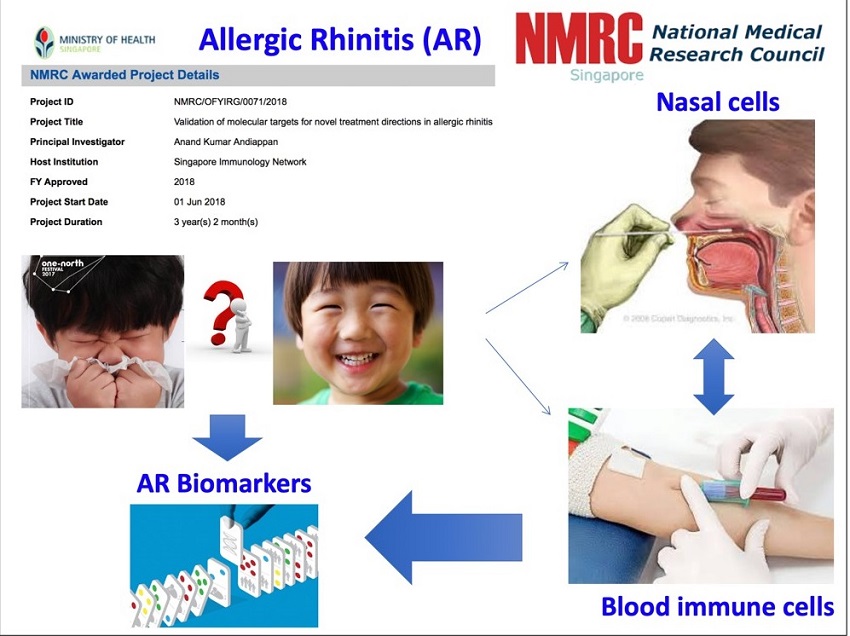
Anand ANDIAPPAN
Biography
Anand Kumar Andiappan obtained his undergraduate degree from St. Peters Engineering College, Anna University in 2006 where he studied Industrial Biotechnology. He started his research career in the department of Biological Sciences in NUS, specialising in genetics of atopy and allergies in Singapore. He then moved to A*STAR in 2012 where he started as a post-doc at Olaf Rotzschke laboratory where he published the comprehensive study on atopic sensitisation and allergies in Singapore. Together with NUH, they also characterised multiple functional candidates for allergic diseases like BDNF, ORMDL3, CTLA-4, FCER1A.
He then started his laboratory in SIgN in July 2018 on receiving the NMRC Young Investigator award (OF-YIRG). Currently his lab focuses on molecular profiling of biomarkers for allergies, infection and respiratory disorders (AIR biomarkers). He recently was also awarded a career development award (CDA) from A*STAR for “Novel Treatment Directions for Atopic Dermatitis in Asia: From Clinical Phenotypes to Molecular Endotypes”.
Research Focus
Research Study
Lab Members
| Postdoc (Ph.D) | Research Officer |
| Thomas LOY Tian Xian | Jocelyn ONG Wen Xin |
| Rhea Pai | Jing Hui LOW |
| Srinidhi Sudharson | Crystal TAN |
| Kim Seohyun | |
Publications
Publications_Anand Andiappan (last updated 21 January 2026)A*STAR celebrates International Women's Day

From groundbreaking discoveries to cutting-edge research, our researchers are empowering the next generation of female science, technology, engineering and mathematics (STEM) leaders.
Get inspired by our #WomeninSTEM


